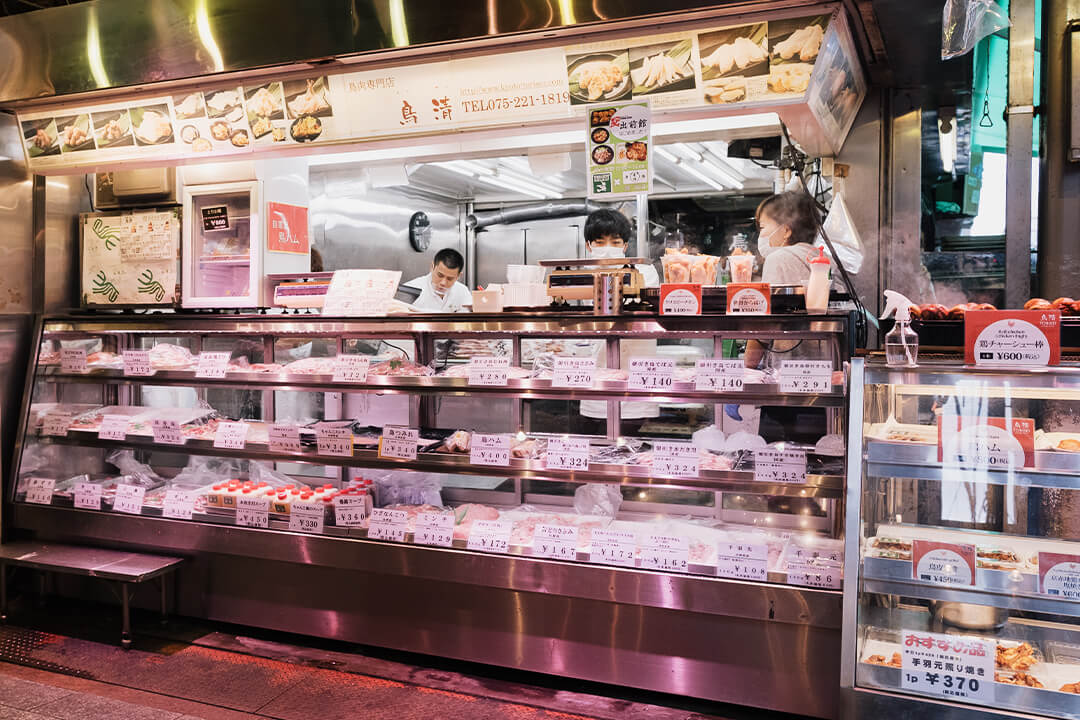All shops
125件Please note that business hours and regular holidays may have changed.
Yamamoto Banba
Yamamoto Banba specializes in fresh, live river fish. They use Nishiki's underground water to deliver river fish straight to restaurants while they are still swimming. They also focus on making prepared specialty dishes using river fish. Because they process and use live fish, the taste is very delicious. They sell these products, which are made with fresh river fish from Lake Biwa and specially seasoned, in their store and ship them to other parts of Japan.
- freshwater fish
- processed fish
- deli
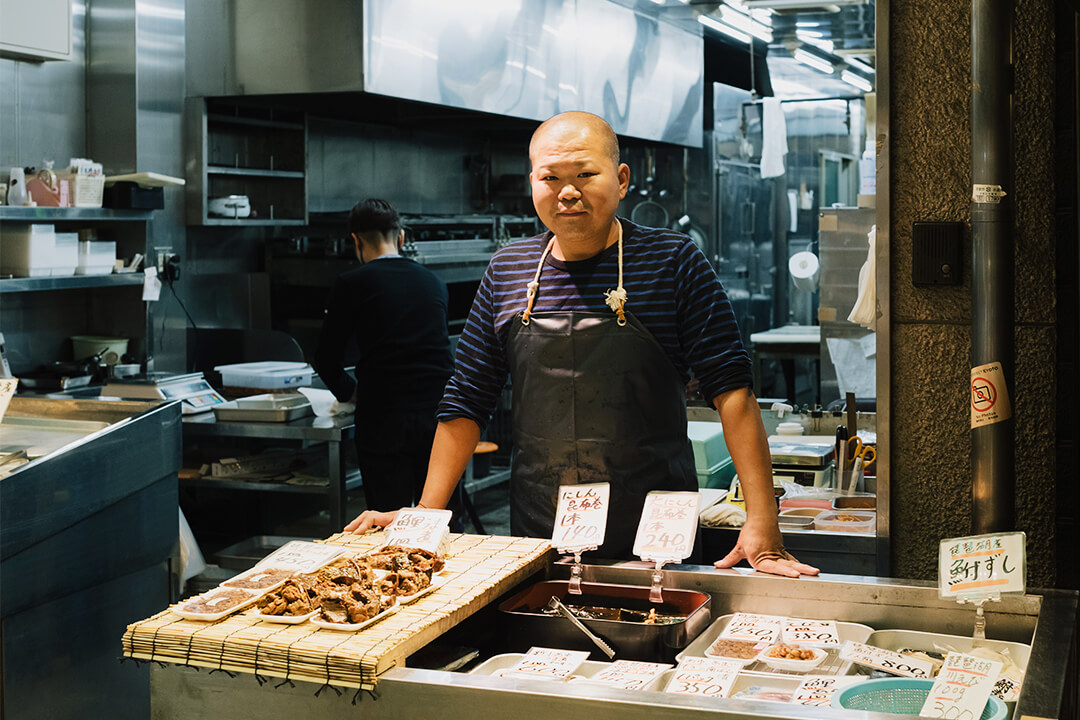
Konnamonja
This shop opened about 30 years ago under the direct management of Kyo Tofu Fujino, which has existed near Kitano Tenmangu Shrine for about 60 years. Their products include Fujino’s tofu, fried tofu, ganmodoki fried tofu patties, fresh yuba soy milk skin, and other products made in Yosano-cho of the Tango area of Kyoto, which is blessed with abundant water sources in the midst of beautiful nature. In addition, Konnamonja has been working on soy milk sweets since its opening. Especially popular are their soy milk doughnuts and soy milk soft serve ice cream.
- soy food
- western style sweets
- restaurant
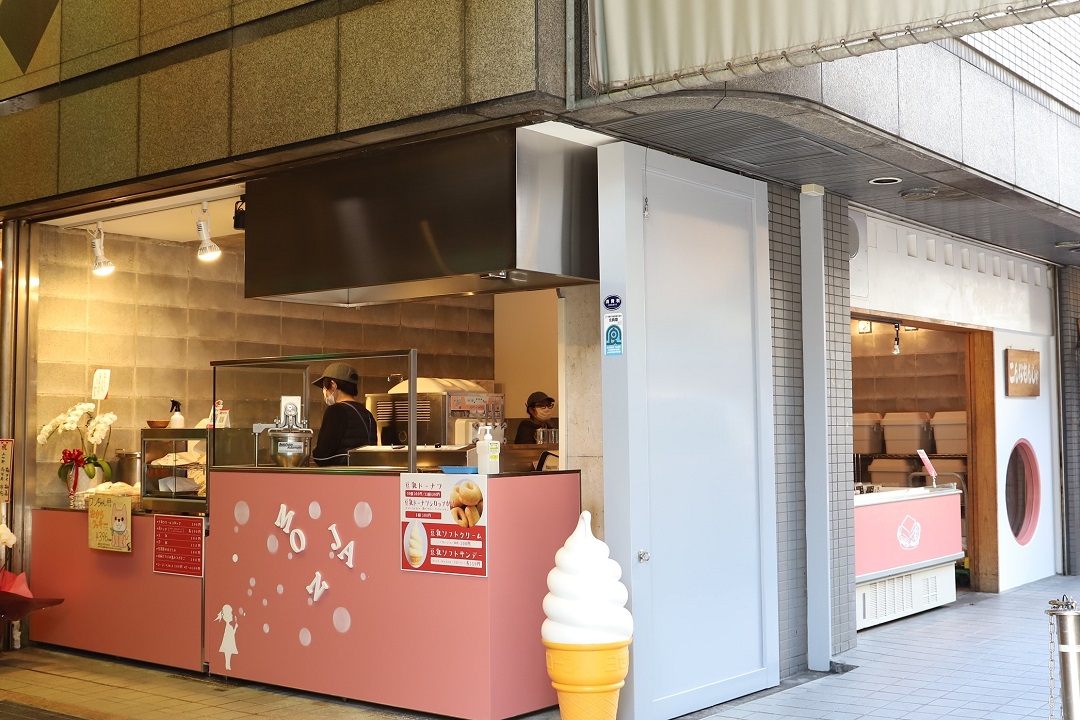
Nishiki Murasaki
“The roots of this restaurant lie in an oshiruko (sweet bean soup) and noodle store started by my father around 1945. I am committed to delivering the best-tasting food by cherishing the spirit of dedication that was taught to me by my father,” says the owner of Nishiki Murasaki. Drawing on his own experience working at a confectionery store, he now focuses on peanuts, Kyoto sweets, and old-fashioned Japanese sweets. “Every morning we purchase the highest grade peanuts from Enshu (Hamamatsu City, Shizuoka Prefecture), which are freshly roasted, and only enough for that day's sales.”
- Japanese sweets
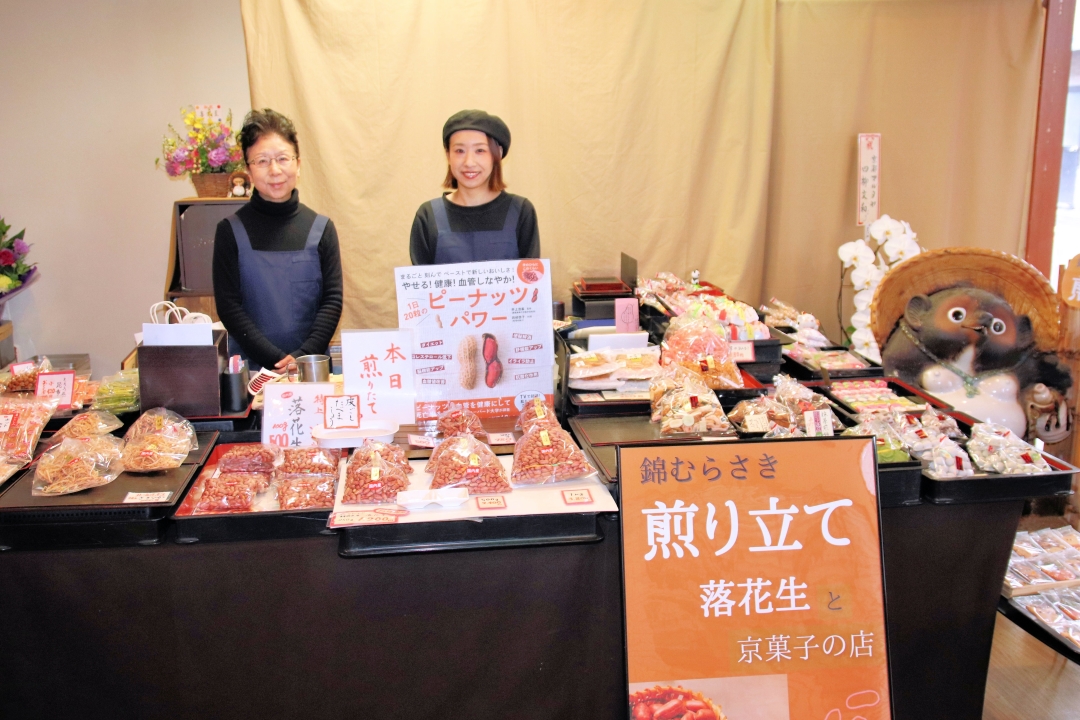
Ajisai Notoyo
If you go up the stairs next to the Notoyo West Shop, you will find a machiya-style restaurant there. The time here passes slowly—a refreshing change from the hustle and bustle of the marketplace. The eel is grilled carefully in the restaurant using binchotan charcoal, so the skin is crispy, and the taste of the special sauce made with a secret recipe is unbelievably delicious. Eel rice bowl, eel set meal, koi-no-arai (hot-water-washed and then cooled carp), and, on weekdays only, hitsumabushi (similar to eel teriyaki on rice) are available.
- eels
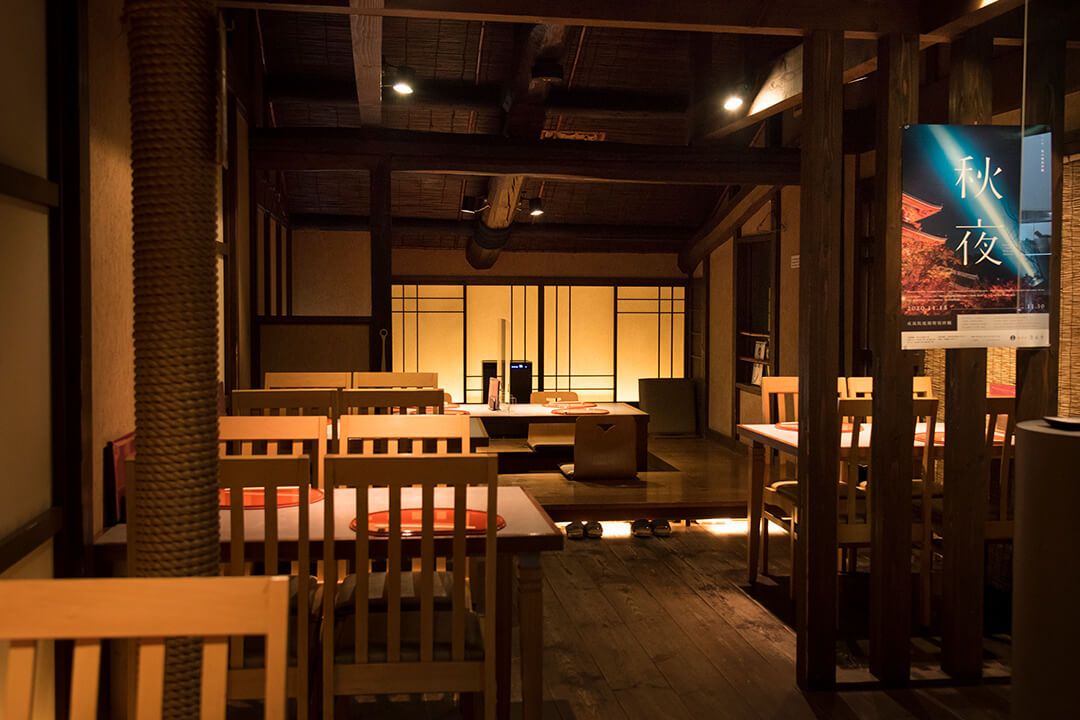
Yamadashiya
Whenever you pass by the shop, the aroma of hojicha (roasted tea), which the owner roasts day in and day out, invites you to come in. In Kyoto, hojicha is called “bancha.” The "ban" in "bancha" is the same as the "ban" in "obanzai" (home cooking), meaning "for daily use," so there is a theory that "bancha" was originally called as such because it was a tea commonly drunk in the home.
- Ingredients & Seasonings
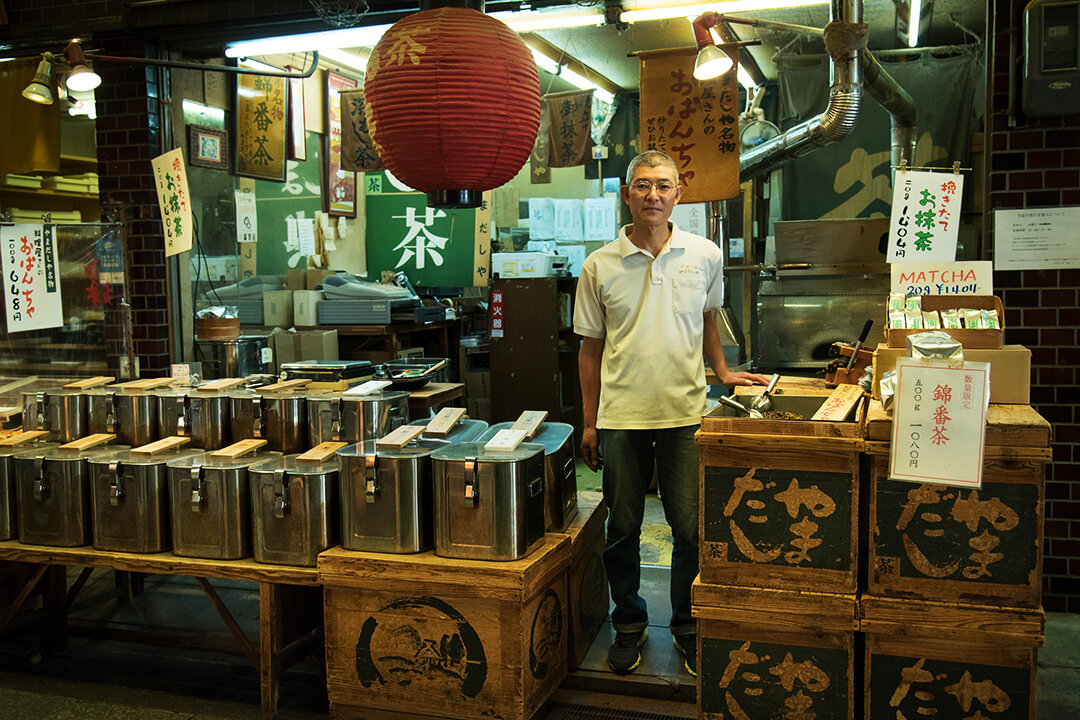
Nishiri
“Our goal is to bring health and happiness to our customers by respecting the Japanese food culture under the theme of ‘seasonal, delicious, and mild,’” they say. “In addition to traditional pickled products such as senmaizuke sliced turnip and suguki turnip, we also offer the ‘Kyo-no-assari-zuke (light Kyoto pickels)’ series, which brings out the flavor of vegetables with less salt than usual, and the ‘Nishiri Labre’ series, which utilizes the lactic acid bacteria Lactobacillus brevis KB290, abbreviated as ‘Labre,’ discovered in suguki-turnip.”
- pickles
- restaurant
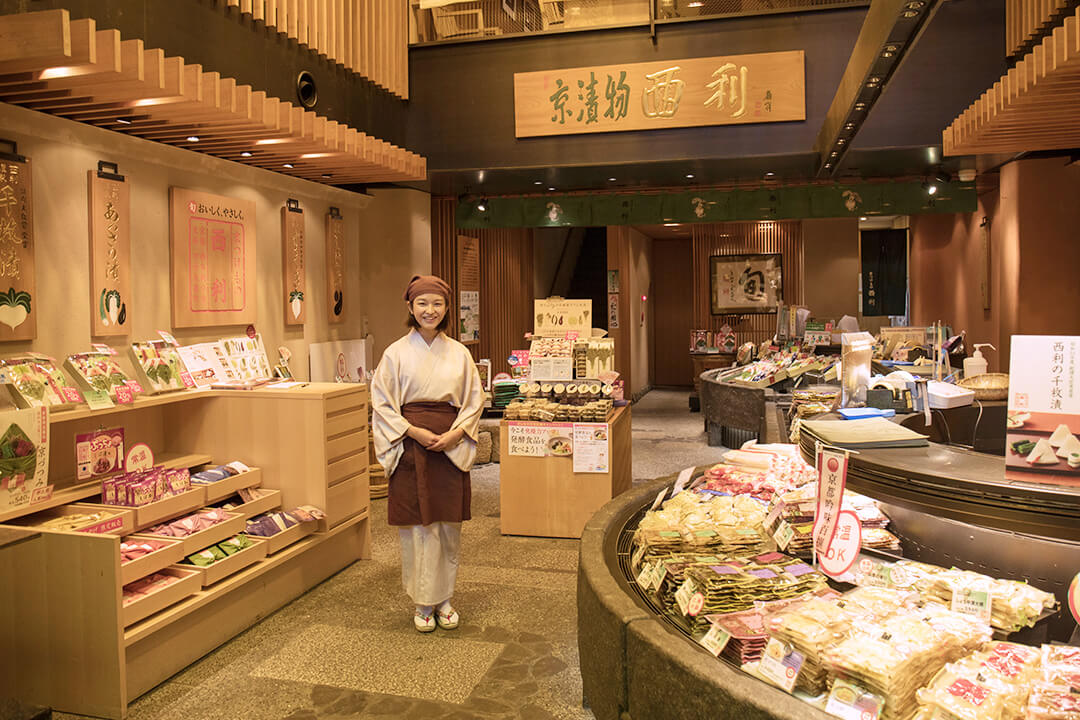
Sankyo Suisan
The company was founded in Osaka's central market. During the war, the owner returned to Kyoto, his grandfather's birthplace, and opened a store in Nishiki Market. Sankyo Suisan wholesales and retails dried swordtip squid, which has been its main product since its Osaka days, as well as salted and dried seafood such as cod roe and chirimen baby sardines, and delicacies such as karasumi (dried salted mullet roe pouch) and konoko (fermented salted sea cucumber intestines). They continue to focus on delivering delicious domestic seafood at affordable prices.
- dried salted fish
- processed fish
- delicacy
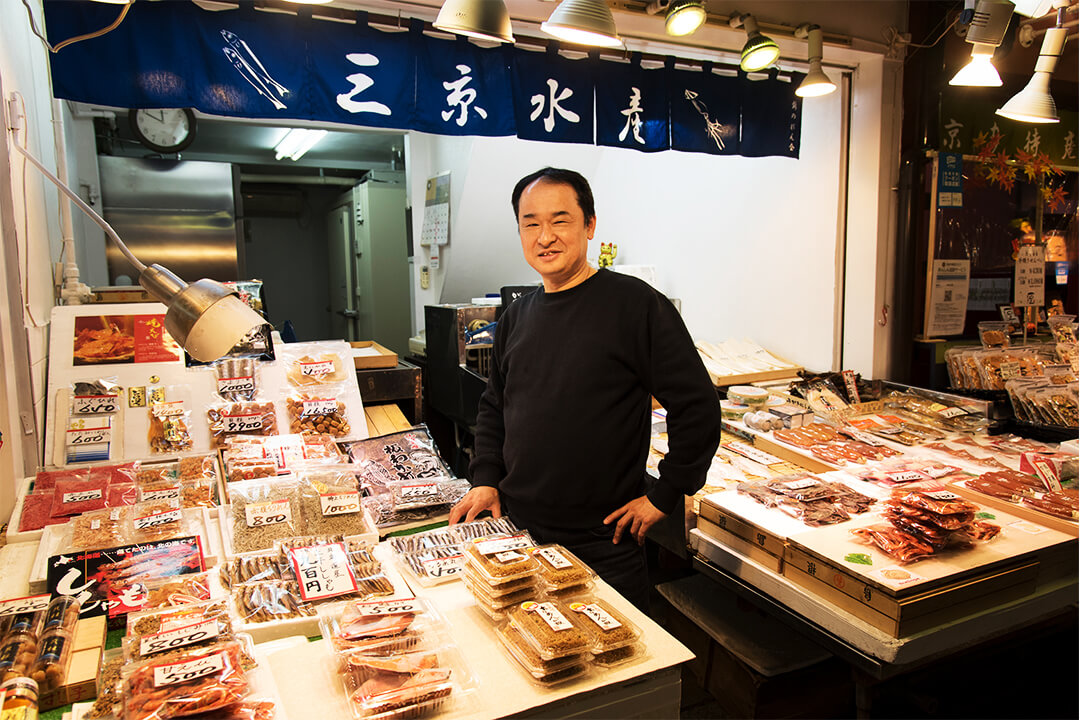
Kyo Tsukimachian West
This shop specializes in an unusual pastry called "Fuku-Daruma Anesu.” "Anesu" is based on the sound of a Portuguese word for baked sweets. It is actually a word that has been used for a long time in Japan, although not many people are familiar with it. The ingredients are flour, sugar, and eggs. The surface is baked to a smooth firmness, and the face of Daruma (a Buddhist saint) and the word "fuku," meaning "good luck," are branded on it. Hence, “Fuku-Daruma Anesu.” The texture is crispy, like a Japanese "bolo" cookie, which also happens to be derived from a Portuguese pastry.
- Japanese sweets
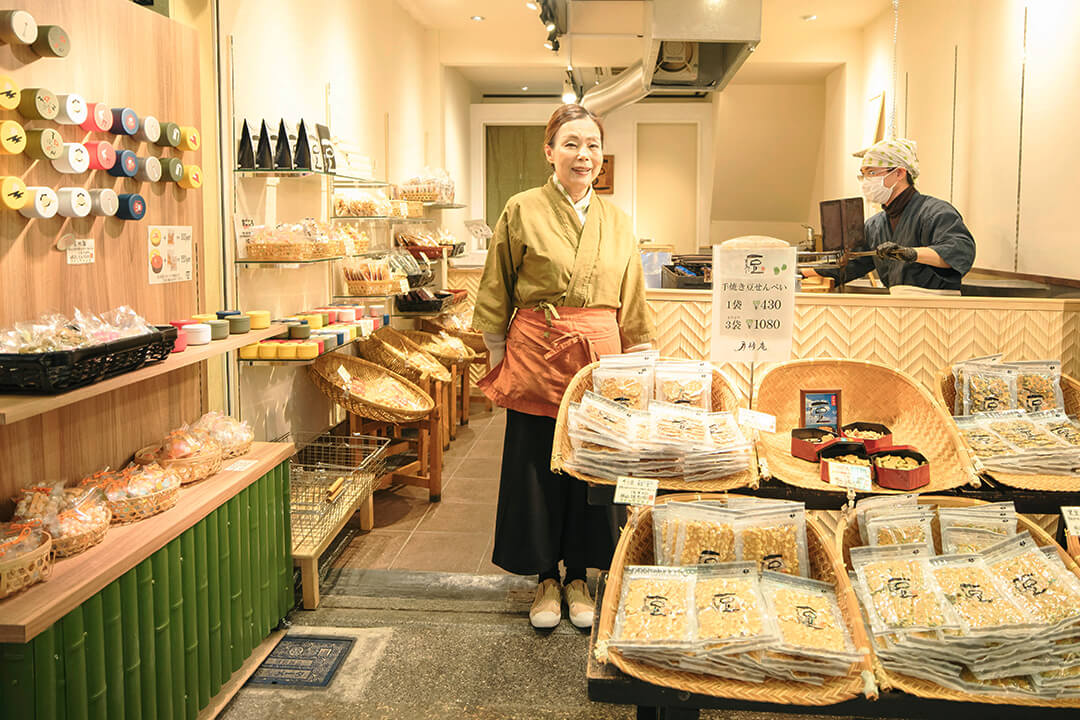
Tempura Tensyo
We are a restaurant specializing in tempura, where the craftsmanship of our chefs stands out. We use carefully selected ingredients such as large plump prawns and pike conger eel that we contract with ourselves for a year, and serve them freshly prepared and hot. The lineup of tempura in front of the store attracts the overwhelming attention of people passing by the store.
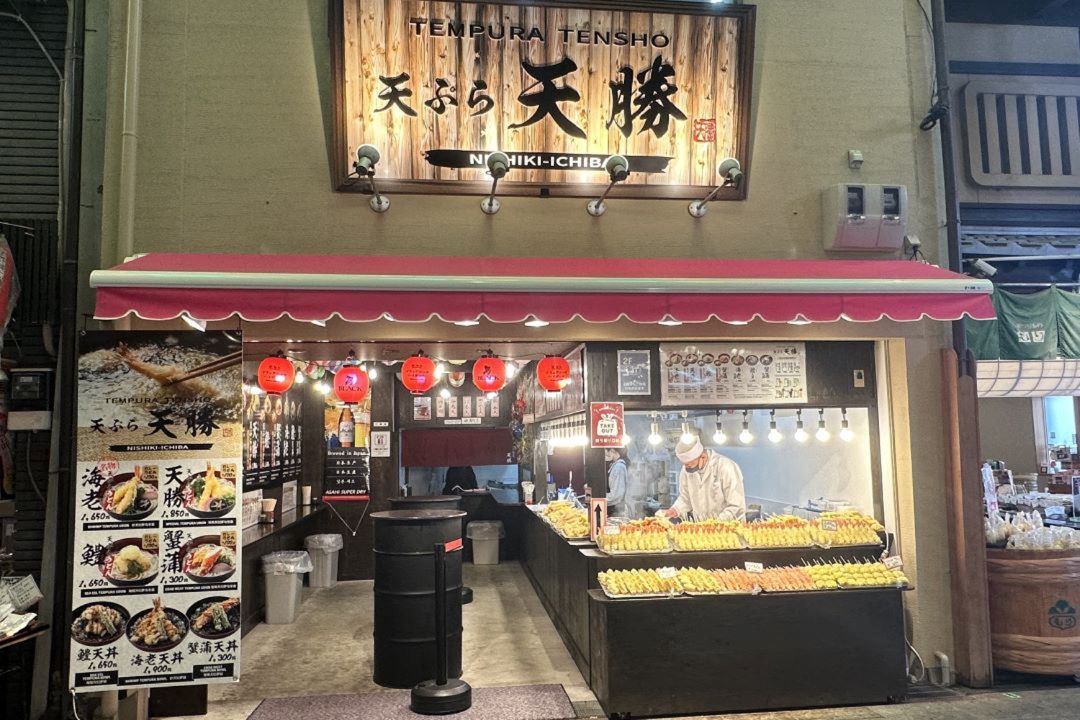
Torisei
Torisei has been selling chicken for about 110 years. The store is a long-established poultry specialty store whose popular items are duck breast and chicken thighs cut up in the morning. In the back of the store, you can always see the busy workers. It is said that a shop visited daily by many customers is able to keep its merchandise fresh and tasty, and this is truly the case at this thriving shop. Torisei is dedicated to morning-cut chicken and duck meat. They also wholesale this meat to restaurants and accept orders to ship it to other parts of the country.
- chicken
- deli
